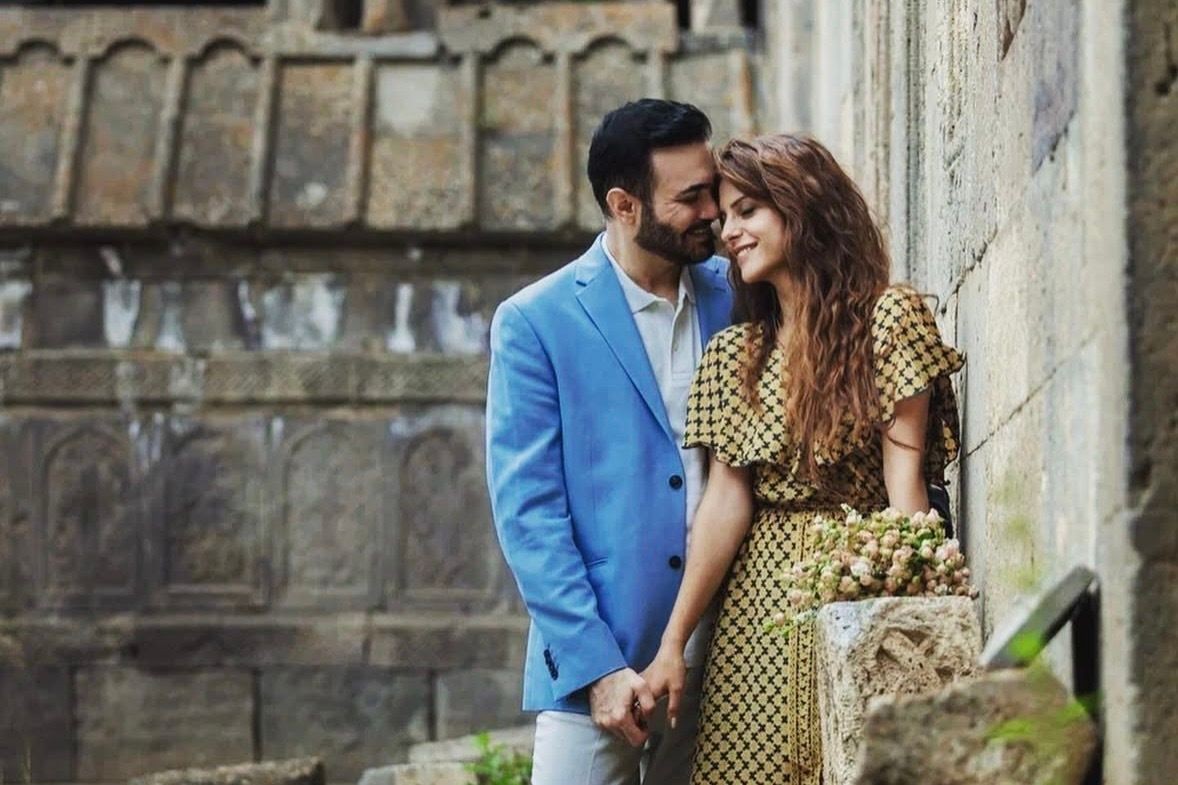
Ani Ohanyan, the wife of Armenian singer Andre, has announced that she was subjected to domestic violence during her marriage. The statement came shortly after the publication of state statistics showing a 150% increase in domestic violence from 2023 to 2024.
Ohanyan, herself a singer, spoke out about her case in an Instagram post on 6 April, saying that ‘behind the beautiful mask of a gentleman’, the terrifying reality was hidden.
She did not provide any information as to when their relationship officially ended, or if they had since divorced.
‘Every day for me began with anxiety and worry — “will he be evil or kind today?”, “will he again offend [me], hit [me], or threaten to deprive [me] of the child?” [...] I thought I could save the family and change him for the better, but his aggression only grew’, Ohanyan wrote.
She also noted that before she ‘dare[d] to speak out’, she showed ‘happiness’ publicly, ‘when no one knew what was happening behind closed doors’.
She described her post as ‘a cry of the soul’ and also a call to all women ‘who suffer like me’.
‘Girls, women, mothers, you deserve the love that brings light and not darkness’, Ohanyan concluded.
The post went viral, dividing society into two groups, with some supporting Andre, who is currently based in the US, while others support Ohanyan.
The Coalition to Stop Violence against Women, a local anti-domestic violence NGO, expressed its deep concern over the statement, ‘appreciating’ Ohanyan’s courage for speaking out on a topic ‘that often remains buried in silence, surrounded by fear, stigma, and societal indifference’.
The coalition also noted that gender-based violence, including domestic violence, was not merely a problem between two individuals, but ‘is a national challenge that requires a systemic approach, consistent policies, and collective efforts from both state institutions, civil society, and every member of society’.
In turn, they urged the public not to remain silent, ‘as silence contributes to the strengthening of an atmosphere of impunity and the entrenchment of violence’.
Armenia sees an increase of over 150% in domestic violence cases
Ohanyan’s statements emerged shortly after the Armenian authorities published statistics showing a drastic increase in domestic violence in Armenia.
According to a report by the Prosecutor General’s office, in 2024, there was a 151% increase in physical abuse — 934 cases, compared to 372 in 2023. Psychological abuse, however, increased by 261% — in 2024, 166 cases were recorded, compared to 46 in 2023.
There was also an increase in murder and intentional serious harm to health considered to be domestic or family violence. In 2024, there were 13 murders due to domestic violence, a significant increase from three the year before.
Zara Hovhannisyan, a representative of the Yerevan-based Women’s Support Centre and a human rights defender, considered the statistics to be ‘concerning’.
She told OC Media that the increase was ‘clearly visible’ considering the number of individuals who have turned to the Women's Support Centre for help after experiencing domestic violence.
Citing data from the centre, Hovhannisyan said that in 2024, more than 1,000 women received various services, and that more than 300 women and children were placed in temporary shelters.
‘These are, of course, numbers that we need to analyse and understand what they are related to’, Hovhannisyan added.
She also highlighted the possible reasons that could have been at the core of the drastic increase, among which include post-traumatic stress disorder (PTSD) caused as a result of the Second Nagorno-Karabakh War in 2020 and the following developments, including the exodus of almost the entire Armenian population of Nagorno-Karabakh in 2023, as Azerbaijan took control over the region after placing it under a nine month blockade.
‘Global statistics and experts prove that three to five years after war situations, we have an increase in the number of domestic violence cases resulting from stress-related situations, and this is of course, also related to PTSD’, the civil rights defender said.
Their centre monitors the situation in the displaced Nagorno-Karabakh families, among which there have been a number of cases where women, along with their children, end up in shelters.
Hovhannisyan further noted that aside from the war and displacement trauma, there was another factor that might have had a great impact on the statistics in Armenia — for years, manifestations of domestic violence in Nagorno-Karabakh were not monitored, there was no relevant legislation or support mechanism for the victims.
‘We also observe manifestations of violence among persons working in law enforcement agencies, which are not few. Cases of violence committed with the threat of weapons’, Hovhannisyan said.
According to her, these situations are a result of the war, during which not all of the weapons distributed were handed over to the authorities following its conclusion, noting that there was a ‘quite high’ circulation of illegal weapons and ammunition. She added that another factor could be related to Armenia loosening the laws on purchasing and carrying firearms in October 2022.









